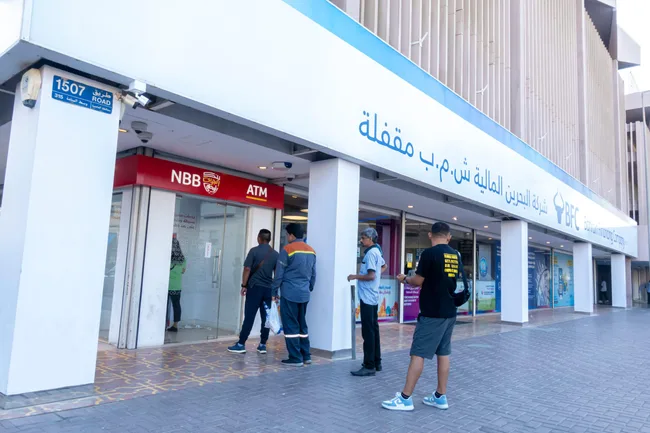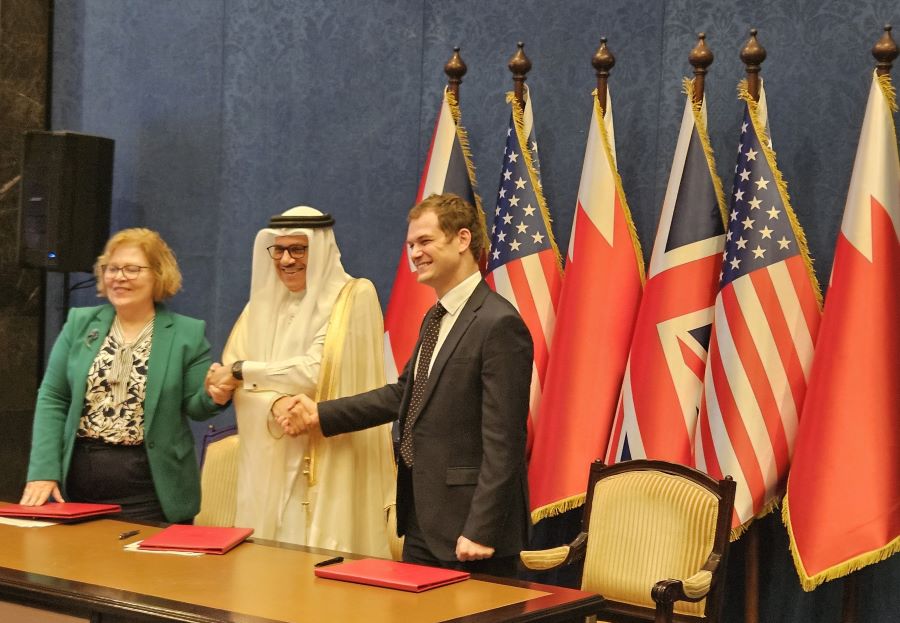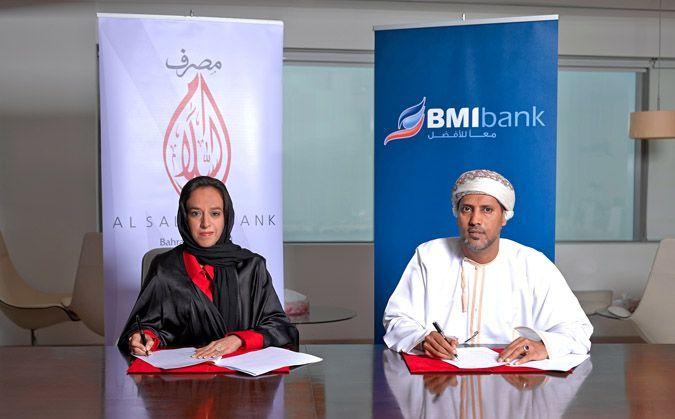Bahrain’s banking sector is undergoing a significant transformation, and recent mergers and acquisitions are leading the charge. These developments are seen as a strategic move to strengthen the kingdom’s financial position, not only within the Gulf Cooperation Council (GCC) region but also on the global stage. As one of the leading financial hubs in the region, Bahrain’s banking sector plays a critical role in driving economic growth, and these mergers signal promising prospects for the future. The combination of leading financial institutions is set to boost Bahrain’s competitiveness, improve financial stability, and provide better services to customers. This article explores the reasons behind these mergers, the strategic benefits they bring to Bahrain, and what this means for the wider Gulf region.
Recent Key Bank Mergers and Acquisitions in Bahrain
1. National Bank of Bahrain (NBB) and Bank of Bahrain and Kuwait (BBK) Merger
In April 2024, Bahrain’s two major banks, National Bank of Bahrain (NBB) and Bank of Bahrain and Kuwait (BBK), announced plans to merge. This merger is poised to create a powerful financial institution capable of competing with the largest players in the GCC region. Both NBB and BBK have strong roots in Bahrain, with NBB being founded in 1957 and BBK in 1971. The merger is expected to enhance their financial position, create efficiencies, and boost their ability to offer a broader range of services to a diverse customer base. This strategic move aligns with Bahrain’s long-term economic goals of diversification and financial sector growth.

At the close of 2023, NBB had a reported equity of $1.5 billion, while BBK’s equity was around $1.7 billion. The merger is expected to elevate the combined entity to the top 30 largest banks within the GCC, making it a formidable player in the region. By joining forces, the two banks aim to provide stronger services, better risk management, and enhanced technological capabilities to meet the growing needs of the market.
2. Burgan Bank’s Acquisition of United Gulf Bank (UGB)
In another significant development, Burgan Bank, headquartered in Kuwait, has received approval to acquire a 100% stake in Bahrain’s United Gulf Bank (UGB). This acquisition, valued at $190 million, is seen as a strategic move to expand Burgan Bank’s reach within the GCC. UGB, with its significant stake in Kamco Investment Company, will provide Burgan Bank with an even larger footprint in the regional investment market. The acquisition is expected to diversify Burgan Bank’s revenue streams and strengthen its position as a key financial player in the region.
The deal underscores a growing trend of Gulf banks looking beyond national borders to expand their operations and diversify their portfolios. By tapping into Bahrain’s thriving financial sector, Burgan Bank will be able to access new market opportunities and attract more international investors.
3. Al Salam Bank’s Acquisition of Kuwait Finance House’s Bahrain Subsidiary
Another noteworthy move in Bahrain’s banking sector is Al Salam Bank’s acquisition of the Bahrain subsidiary of Kuwait Finance House (KFH). This transaction, which was announced earlier in 2024, is part of Al Salam Bank’s strategy to strengthen its position in the sharia-compliant banking sector. Bahrain has long been a hub for Islamic finance, and this acquisition reflects the growing trend of consolidation in this sector.
By acquiring KFH’s Bahrain subsidiary, Al Salam Bank will not only enhance its product offerings but also expand its customer base. This merger reflects a broader trend within the Gulf region, where smaller banks and financial institutions are combining to stay competitive and improve efficiency in a rapidly changing market. Al Salam Bank’s acquisition of KFH’s subsidiary is expected to create new growth opportunities, making it one of the key players in the Islamic banking sector in the region.
Why Bahrain’s Bank Mergers are Positive for the Kingdom and the Gulf
These mergers and acquisitions are not just important corporate moves; they are strategic decisions that can have far-reaching implications for Bahrain and the Gulf region as a whole. There are several key reasons why these mergers are viewed positively.
1. Strengthening Bahrain’s Financial Sector
Bahrain has long been a financial powerhouse in the Gulf, with a well-established banking system and a favorable regulatory environment. However, as regional competition grows, it’s essential for Bahraini banks to consolidate in order to stay competitive. Mergers like the one between NBB and BBK will allow the combined entity to better manage risks, offer more diverse financial products, and compete with larger regional banks.

This consolidation of banks also improves operational efficiency. With fewer, larger institutions, Bahrain’s banking sector can benefit from economies of scale, enabling banks to offer better rates and services to customers. Moreover, the enhanced financial strength of these newly merged banks will likely attract more foreign investments, boosting Bahrain’s economy and reinforcing its position as a regional financial hub.
2. Enhancing Bahrain’s Role in the Gulf Economy
Bahrain’s financial sector is closely integrated with the rest of the Gulf region. The mergers will not only boost Bahrain’s financial standing but also enhance the kingdom’s role in the broader Gulf economy. By consolidating and strengthening the banking sector, Bahrain will be better positioned to serve as a critical financial bridge between the Middle East, Europe, and Asia.
These mergers reflect Bahrain’s ongoing efforts to diversify its economy, which has traditionally relied on oil exports. By boosting the banking sector, Bahrain can attract more international financial institutions and investors. This will help reduce the kingdom’s dependency on oil revenues, contributing to a more stable and sustainable economic future.
3. Greater Stability and Reduced Risk
One of the major advantages of bank mergers is the ability to spread financial risks. A larger, more diversified bank is less vulnerable to market fluctuations and economic shocks. In the face of regional and global economic uncertainty, having a stronger and more stable banking sector can be a source of confidence for investors and customers alike.
With fewer banks in the market, each institution becomes more resilient, with a larger capital base and better ability to weather financial storms. This stability is crucial for maintaining trust in the kingdom’s financial system and ensuring that customers’ deposits and investments are secure.
4. Improving Service Offerings for Consumers
Consolidation often leads to improved services for consumers. With increased resources, banks can invest in new technologies, better customer service, and innovative financial products. This could mean more personalized services for consumers, better digital banking options, and a greater variety of financial products to suit their needs.
Moreover, larger banks have the resources to offer competitive interest rates and lower fees, which can benefit both individual and corporate customers. As banks consolidate, they also gain the ability to improve their digital capabilities, which is essential in today’s fast-paced, technology-driven financial environment.
Strategic Implications for the Gulf Region
Bahrain’s banking mergers are not just important for the kingdom—they are also significant for the wider Gulf region. As a financial hub, Bahrain’s banking sector serves as a model for other countries in the GCC, many of which are undergoing similar reforms. The consolidation of Bahrain’s banks could set a precedent for other Gulf nations, where smaller banks may also look to merge in order to improve competitiveness and profitability.
Moreover, the stronger banks emerging from these mergers will be better positioned to compete regionally and internationally. With the GCC economy increasingly integrated, the larger and more diversified banks in Bahrain will help facilitate cross-border trade and investment. They will also be better equipped to participate in global financial markets, bringing new opportunities for Bahrain and the wider Gulf region.
Conclusion
The ongoing mergers and acquisitions in Bahrain’s banking sector are positive developments that promise to strengthen the kingdom’s financial landscape. These transactions are helping to build larger, more resilient financial institutions that can compete on a global scale. By consolidating, Bahrain’s banks are improving their ability to provide innovative services, attract investment, and contribute to the kingdom’s long-term economic growth.
As Bahrain’s banking sector continues to evolve, these mergers signal a new era of financial stability, growth, and opportunity. For Bahrain and the Gulf region, these changes represent a brighter economic future, driven by a more competitive and robust banking industry.
Will Bahrain and Iran Turn a New Page? There’s Been Talk of It


